IoT-Based Energy Management Systems for Smart Cities
As the world urbanizes at an unprecedented rate cities are experiencing significant challenges in managing energy consumption. With an increase in population infrastructure and energy demand cities must adopt more sustainable energy practices to ensure efficiency cost-effectiveness and environmental sustainability. Alsystemz Solutions aims to address these challenges through IoT-based energy management systems (EMS) designed to make urban environments smarter and more energy-efficient. These systems not only optimize energy consumption but also pave the way for greener cities with lower carbon footprints and improved quality of life for citizens.
This article explores the concept of IoT-based energy management systems for cities how AlSystemz Solutions implements them and their benefits applications and the future of urban energy systems.
What are IoT-Based Energy Management Systems?
IoT-based energy management systems (EMS) leverage the power of the Internet of Things (IoT) to monitor manage and optimize energy consumption across cities. These systems integrate smart meters sensors data analytics and automation technologies to gather real-time data improve energy efficiency and reduce costs. The goal is to create a responsive and intelligent energy ecosystem that adjusts based on demand usage patterns and environmental conditions.
AlSystemz Solutions’ approach focuses on several key components:
- Real-Time Energy Monitoring: IoT-enabled sensors and smart meters installed across cities can continuously monitor energy usage in residential commercial and industrial areas. By providing detailed insights into energy consumption patterns stakeholders can make informed decisions about how to reduce unnecessary energy use optimize processes and shift energy demand during peak hours.
- Smart Grids: AlSystemz Solutions’ smart grid technology allows for efficient distribution of electricity by automating the flow of energy between power plants consumers and renewable energy sources. IoT sensors embedded in the grid detect fluctuations in energy demand and supply ensuring that electricity is distributed where it’s needed most minimizing wastage.
- Energy Optimization for Public Infrastructure: IoT technology can be applied to smart street lighting systems which adjust brightness based on ambient light and foot traffic. In addition public facilities such as schools hospitals and government buildings can be optimized to use energy more efficiently through data-driven insights. AlSystemz Solutions provides an intelligent system that monitors these infrastructures and automates energy-saving actions.
- Renewable Energy Integration: As more cities shift towards renewable energy sources like solar and wind power IoT-based EMS are crucial in integrating these sources into the urban energy grid. AlSystemz Solutions helps cities optimize the performance of renewable energy installations and manage energy storage systems ensuring a steady supply of electricity even when the sun isn’t shining or the wind isn’t blowing.
- Demand Response and Energy Storage: With smart IoT-based EMS cities can implement demand response systems that automatically adjust energy consumption based on peak demand periods. For example AlSystemz Solutions’ EMS can reduce energy usage in non-essential areas during peak hours relieving pressure on the grid. Additionally energy storage systems store surplus energy generated during low-demand periods making it available when energy demand is high thereby improving grid resilience and stability.
- Smart Buildings: Buildings account for a significant portion of energy consumption in cities and IoT-based systems help optimize energy usage within both commercial and residential properties. AlSystemz Solutions offers smart building management systems that control HVAC (heating ventilation and air conditioning) lighting and other critical systems based on occupancy levels and environmental factors. This results in significant energy savings and enhanced comfort for building occupants.
Key Features of AlSystemz Solutions’ IoT-Based EMS
- Real-Time Data Collection and Analytics: AlSystemz Solutions utilizes IoT sensors to gather data on energy usage in real time. This data is analyzed using advanced analytics and machine learning to identify inefficiencies predict future energy needs and suggest optimizations. The ability to monitor energy consumption minute by minute allows city planners and utilities to make proactive decisions about energy distribution and usage.
- Automation and Control: IoT-based EMS can automate energy-related decisions ensuring optimal energy usage without human intervention. For instance systems can automatically adjust street lighting HVAC systems and other energy-intensive processes based on data from IoT sensors. This helps to prevent energy waste especially in large complex environments like cities.
- Cloud-Based Platforms: AlSystemz Solutions leverages cloud computing to centralize data collection and management making it accessible to stakeholders from anywhere. By using a cloud-based platform city officials building managers and energy providers can collaborate seamlessly to ensure that energy management is as efficient and effective as possible.
- Security and Reliability: With the vast amounts of data collected and transmitted by IoT devices security is a top priority. AlSystemz Solutions implements strong encryption and data protection protocols to ensure that sensitive energy data remains secure. Additionally the system is designed for high reliability and uptime ensuring that critical infrastructure remains operational even in challenging conditions.
- Scalability and Flexibility: AlSystemz Solutions offers highly scalable systems that can be customized for cities of all sizes from small towns to large metropolitan areas. The flexibility of the system allows it to grow and adapt as the city’s energy needs evolve making it a long-term investment for smart city development.
Use Cases for AlSystemz Solutions’ IoT-Based EMS in Cities
- Smart Street Lighting in Urban Areas: Traditional street lighting can account for a significant portion of a city’s energy consumption. With IoT-based smart lighting systems cities can drastically reduce energy waste by adjusting the brightness of streetlights based on environmental conditions and traffic patterns. For example streetlights can dim during periods of low traffic or turn off completely when not needed. These systems not only reduce energy consumption but also lower maintenance costs as IoT sensors can predict when a light needs repair or replacement.
- Energy Optimization in Public Buildings: AlSystemz Solutions has implemented EMS in public buildings where energy consumption is traditionally high. Through automated control of lighting heating and cooling systems energy consumption can be reduced without compromising comfort. The EMS monitors factors like occupancy outdoor weather conditions and energy prices to adjust settings accordingly. For example when a building is unoccupied the system can turn off HVAC and lighting systems to save energy.
- Renewable Energy Management in Cities: Cities aiming for carbon neutrality often face challenges in managing the variability of renewable energy sources. AlSystemz Solutions’ EMS helps cities manage this variability by coordinating the production and storage of renewable energy. With IoT-enabled systems energy generated from sources like solar panels or wind turbines can be stored in batteries when demand is low and released when demand peaks.
- Electric Vehicle (EV) Charging Infrastructure: As electric vehicles become more popular cities need to accommodate the growing demand for EV charging stations. IoT-based EMS from AlSystemz Solutions can manage the network of EV charging stations to ensure that they are used efficiently. The system can optimize when and where EVs are charged preventing grid overload during peak times and ensuring that EVs are charged using renewable energy whenever possible.
- Emergency Energy Management: In the event of a power outage or other emergency AlSystemz Solutions’ EMS can quickly identify and isolate the problem ensuring that essential services remain powered. For example hospitals fire stations and other critical facilities can be prioritized and non-essential areas can be powered down to conserve energy.
Benefits of IoT-Based EMS for Cities
- Energy Efficiency: One of the primary benefits of IoT-based EMS is the drastic improvement in energy efficiency. By monitoring and controlling energy usage in real-time cities can minimize waste and optimize consumption. This is particularly important in reducing the strain on aging energy infrastructure.
- Cost Savings: By optimizing energy consumption cities can reduce energy costs for both public infrastructure and private buildings. IoT-based EMS can help lower electricity bills for residents and businesses alike by implementing energy-saving strategies such as demand response peak shaving and dynamic pricing.
- Sustainability: IoT-based energy management plays a significant role in helping cities achieve their sustainability goals. By integrating renewable energy sources and reducing reliance on fossil fuels cities can lower their carbon emissions and contribute to the fight against climate change.
- Enhanced Grid Reliability: IoT-based EMS can help cities improve the reliability of their energy grids by providing real-time data on energy usage and potential grid disruptions. This enables faster response times to outages and ensures that energy is distributed where it’s needed most.
- Data-Driven Decision Making: The data collected by IoT sensors enables city planners utility companies and other stakeholders to make informed decisions about energy management. By analyzing energy usage patterns cities can plan for future energy needs and ensure that resources are allocated efficiently.
Conclusion
IoT-based energy management systems are revolutionizing the way cities manage their energy needs. Alsystemz Solutions is at the forefront of this transformation offering cutting-edge solutions that help cities become more energy-efficient sustainable and resilient. Through real-time monitoring automation and advanced analytics cities can reduce energy waste lower costs and achieve their long-term sustainability goals. As the world continues to urbanize IoT-based EMS will play a critical role in shaping the future of smart cities.

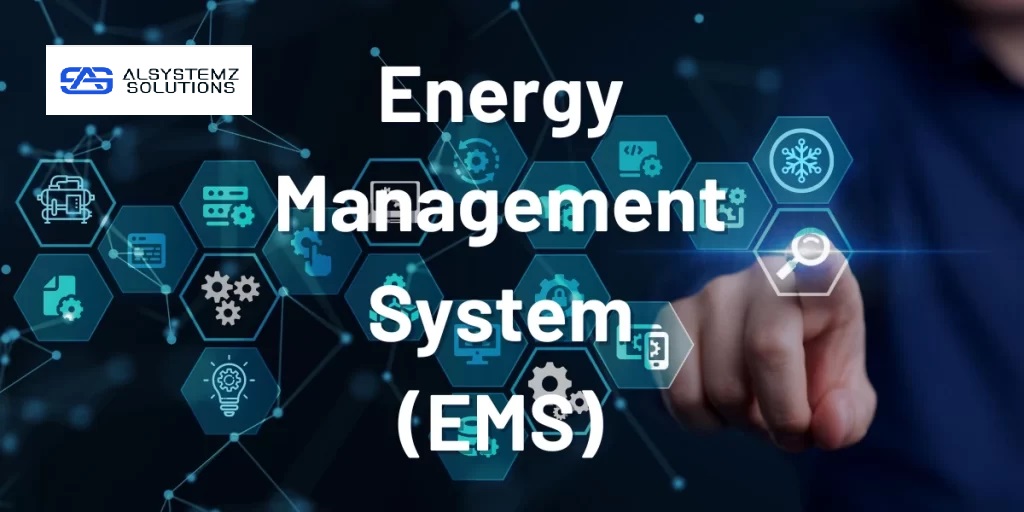
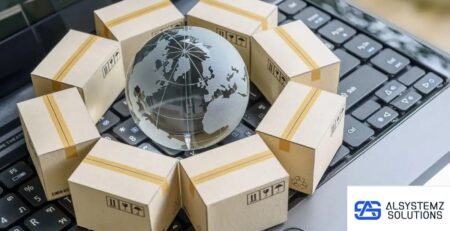
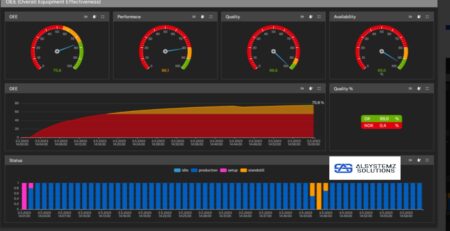

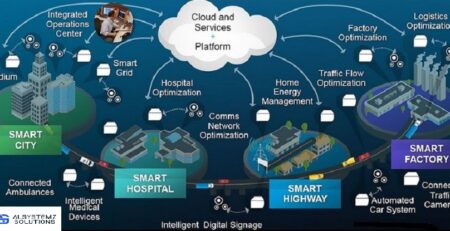
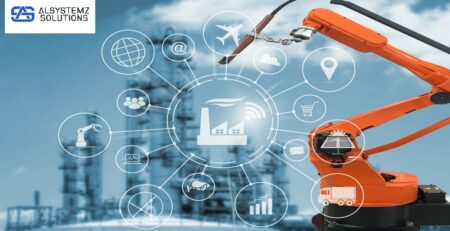
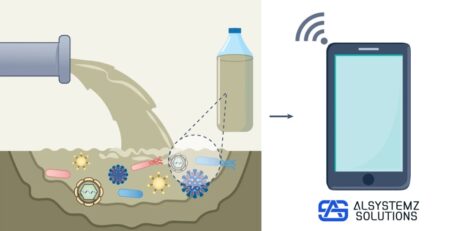




Leave a Reply